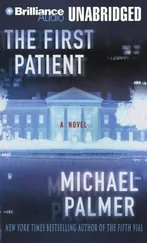Michael Ondaatje - The English Patient
Здесь есть возможность читать онлайн «Michael Ondaatje - The English Patient» весь текст электронной книги совершенно бесплатно (целиком полную версию без сокращений). В некоторых случаях можно слушать аудио, скачать через торрент в формате fb2 и присутствует краткое содержание. Жанр: Старинная литература, на русском языке. Описание произведения, (предисловие) а так же отзывы посетителей доступны на портале библиотеки ЛибКат.
- Название:The English Patient
- Автор:
- Жанр:
- Год:неизвестен
- ISBN:нет данных
- Рейтинг книги:4 / 5. Голосов: 1
-
Избранное:Добавить в избранное
- Отзывы:
-
Ваша оценка:
- 80
- 1
- 2
- 3
- 4
- 5
The English Patient: краткое содержание, описание и аннотация
Предлагаем к чтению аннотацию, описание, краткое содержание или предисловие (зависит от того, что написал сам автор книги «The English Patient»). Если вы не нашли необходимую информацию о книге — напишите в комментариях, мы постараемся отыскать её.
The English Patient — читать онлайн бесплатно полную книгу (весь текст) целиком
Ниже представлен текст книги, разбитый по страницам. Система сохранения места последней прочитанной страницы, позволяет с удобством читать онлайн бесплатно книгу «The English Patient», без необходимости каждый раз заново искать на чём Вы остановились. Поставьте закладку, и сможете в любой момент перейти на страницу, на которой закончили чтение.
Интервал:
Закладка:
But he felt he was now within something, perhaps a painting he had seen somewhere in the last year. Some secure couple in a field. How many he had seen with their laziness of sleep, with no thought of work or the dangers of the world. Beside him there were the mouselike movements within Hana’s breath; her eyebrows rode upon argument, a small fury in her dreaming. He turned his eyes away, up towards the tree and the sky of white cloud. Her hand gripped him as mud had clung along the bank of the Moro River, his fist plunging into the wet earth to stop himself slipping back into the already crossed torrent.
If he were a hero in a painting, he could claim a just sleep. But as even she had said, he was the brownness of a rock, the brownness of a muddy storm-fed river. And something in him made him step back from even the naive innocence of such a remark. The successful defusing of a bomb ended novels. Wise white fatherly men shook hands, were acknowledged, and limped away, having been coaxed out of solitude for this special occasion. But he was a professional. And he remained the foreigner, the Sikh. His only human and personal contact was this enemy who had made the bomb and departed brushing his tracks with a branch behind him.
Why couldn’t he sleep? Why couldn’t he turn towards the girl, stop thinking everything was still half lit, hanging fire? In a painting of his imagining the field surrounding this embrace would have been in flames. He had once followed a sapper’s entrance into a mined house with binoculars. He had seen him brush a box of matches off the edge of a table and be enveloped by light for the half-second before the crumpling sound of the bomb reached him. What lightning was like in 1944. How could he trust even this circle of elastic on the sleeve of the girl’s frock that gripped her arm? Or the rattle in her intimate breath as deep as stones within a river.
She woke when the caterpillar moved from the collar of her dress onto her cheek, and she opened her eyes, saw him crouched over her. He plucked it from her face, not touching her skin, and placed it in the grass. She noticed he had already packed up his equipment. He moved back and sat against the tree, watching her as she rolled slowly onto her back and then stretched, holding that moment for as long as she could. It must have been afternoon, the sun over there. She leaned her head back and looked at him.
“You were supposed to hold onto me!”
“I did. Till you moved away.”
“How long did you hold me?”
“Until you moved. Until you needed to move.”
“I wasn’t taken advantage of, was I?” Adding, “Just joking,” as she saw him beginning to blush.
“Do you want to go down to the house?”
“Yes, I’m hungry.”
She could hardly stand up, the dazzle of sun, her tired legs. How long they had been there she still didn’t know. She could not forget the depth of her sleep, the lightness of the plummet.
A party began in the English patient’s room when Caravaggio revealed the gramophone he had found somewhere.
“I will use it to teach you to dance, Hana. Not what your young friend there knows. I have seen and turned my back on certain dances. But this tune, ‘How Long Has This Been Going On,’ is one of the great songs because the introduction’s melody is purer than the song it introduces. And only great jazzmen have acknowledged that. Now, we can have this party on the terrace, which would allow us to invite the dog, or we can invade the Englishman and have it in the bedroom upstairs. Your young friend who doesn’t drink managed to find bottles of wine yesterday in San Domenico. We have not just music. Give me your arm. No. First we must chalk the floor and practise. Three main steps—one-two-three—now give me your arm. What happened to you today?”
“He dismantled a large bomb, a difficult one. Let him tell you about it.”
The sapper shrugged, not modestly, but as if it was too complicated to explain. Night fell fast, night filled up the valley and then the mountains and they were left once more with lanterns.
They were shuffling together in the corridors towards the English patient’s bedroom, Caravaggio carrying the gramophone, one hand holding its arm and needle.
“Now, before you begin on your histories,” he said to the static figure in the bed, “I will present you with ‘My Romance.’ ”
“Written in 1935 by Mr. Lorenz Hart, I believe,” muttered the Englishman. Kip was sitting at the window, and she said she wanted to dance with the sapper.
“Not until I’ve taught you, dear worm.”
She looked up at Caravaggio strangely; that was her father’s term of endearment for her. He pulled her into his thick grizzled embrace and said “dear worm” again, and began the dancing lesson.
She had put on a clean but unironed dress. Each time they spun she saw the sapper singing to himself, following the lyrics. If they had had electricity they could have had a radio, they could have had news of the war somewhere. All they had was the crystal set belonging to Kip, but he had courteously left it in his tent. The English patient was discussing the unfortunate life of Lorenz Hart. Some of his best lyrics to “Manhattan,” he claimed, had been changed and he now broke into those verses
“We’ll bathe at Brighton;
The fish well frighten
When we’re in .
Your bathing suit so thin
Will make the shellfish grin
Fin to fin .
“Splendid lines, and erotic, but Richard Rodgers, one suspects, wanted more dignity.”
“You must guess my moves, you see.”
“Why don’t you guess mine?”
“I will when you know what to do. At present I’m the only one who does.”
“I bet Kip knows.”
“He may know but he won’t do it.”
“I shall have some wine,” the English patient said, and the sapper picked up a glass of water, flung the contents through the window and poured wine for the Englishman.
“This is my first drink in a year.”
There was a muffled noise, and the sapper turned quickly and looked out of the window, into the darkness. The others froze. It could have been a mine. He turned back to the party and said, “It’s all right, it wasn’t a mine. That seemed to come from a cleared area.”
“Turn the record over, Kip. Now I will introduce you to ‘How Long Has This Been Going On,’ written by—” He left an opening for the English patient, who was stymied, shaking his head, grinning with the wine in his mouth.
“This alcohol will probably kill me.”
“Nothing will kill you, my friend. You are pure carbon.”
“Caravaggio!”
“George and Ira Gershwin. Listen.”
He and Hana were gliding to that sadness of the saxophone. He was right. The phrasing so slow, so drawn out, she could sense the musician did not wish to leave the small parlour of the introduction and enter the song, kept wanting to remain there, where the story had not yet begun, as if enamoured by a maid in the prologue. The Englishman murmured that the introductions to such songs were called “burdens.”
Her cheek rested against the muscles of Caravaggio’s shoulder. She could feel those terrible paws on her back against the clean frock, and they moved in the limited space between the bed and the wall, between bed and door, between the bed and the window alcove that Kip sat within. Every now and then as they turned she would see his face. His knees up and his arms resting on them. Or he would be looking out of the window into darkness.
“Do any of you know a dance called the Bosphorus hug?” the Englishman asked.
“No such thing.”
Kip watched the large shadows slide over the ceiling, over the painted wall. He struggled up and walked to the English patient to fill his empty glass, and touched the rim of his glass with the bottle in a toast. West wind coming into the room. And he turned suddenly, angry. A frail scent of cordite reaching him, a percentage of it in the air, and then he slipped out of the room, gesturing weariness, leaving Hana in the arms of Caravaggio.
Читать дальшеИнтервал:
Закладка:
Похожие книги на «The English Patient»
Представляем Вашему вниманию похожие книги на «The English Patient» списком для выбора. Мы отобрали схожую по названию и смыслу литературу в надежде предоставить читателям больше вариантов отыскать новые, интересные, ещё непрочитанные произведения.
Обсуждение, отзывы о книге «The English Patient» и просто собственные мнения читателей. Оставьте ваши комментарии, напишите, что Вы думаете о произведении, его смысле или главных героях. Укажите что конкретно понравилось, а что нет, и почему Вы так считаете.












